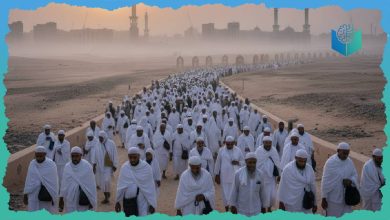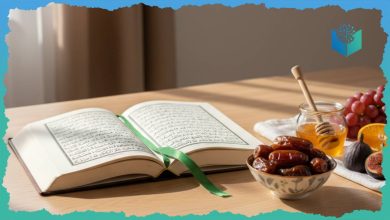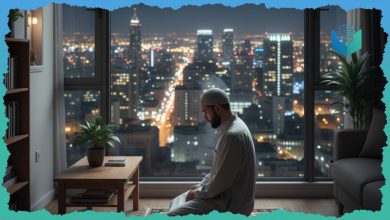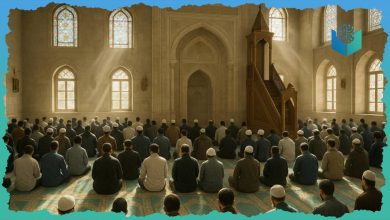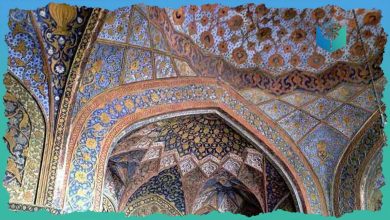The Concept of Predestination (Qadr) in Islam
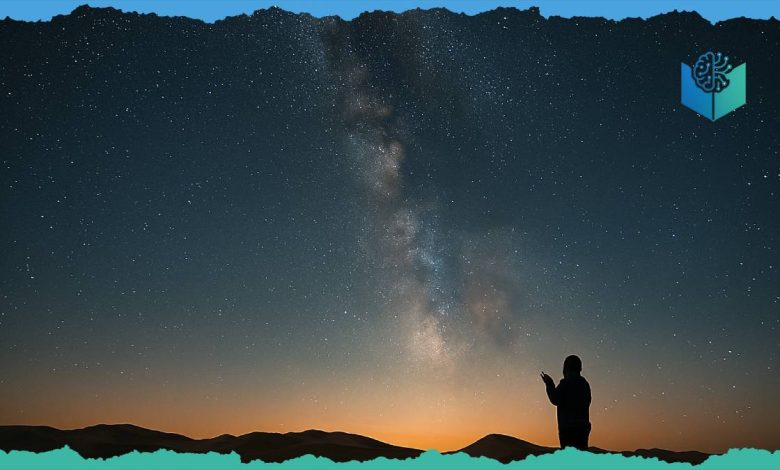
Among the core beliefs that shape a Muslim’s understanding of life is Qadr in Islam, or divine predestination. The concept of the perfect balance between Allah’s absolute knowledge and human free will is a concept that has fascinated scholars and believers alike for centuries. Understanding predestination in Islam helps Muslims find peace in life’s uncertainties, knowing that every event unfolds under Allah’s wisdom and decree.
The Meaning of Qadr in Islam
The Arabic term Qadr (قدر) is often translated as measure, decree, or destiny. It represents Allah’s divine determination of everything that happens in the universe, from the movement of galaxies to the beating of a heart.
Allah says in the Quran:
“Indeed, all things We created with Qadr.” (Quran 54:49)
This verse beautifully summarizes the Islamic belief in fate that everything occurs according to a divine plan. Nothing is random; every moment carries purpose, even if human understanding cannot always grasp it.
Qada and Qadr: Understanding the Two Dimensions of Fate
In Islamic teachings, destiny is often described in two related terms: Qada and Qadr. Though sometimes used interchangeably, they carry distinct meanings:
- Qada refers to Allah’s eternal decree that His pre-knowledge will determine all things.
- Qadr is the unfolding of that decree in time, the actual execution of Allah’s will.
For example, it was part of Qada that a person would be born on a specific day, while Qadr is the occurrence of that birth in reality.
Both terms together illustrate the depth of divine decree that Allah’s knowledge, will, and power encompass every aspect of existence.

The Four Levels of Belief in Qadr
The Prophet Muhammad (peace be upon him) taught that true faith includes belief in destiny, both its good and bad. Scholars often summarize this into four levels of belief in Qadr, derived from Quranic principles:
- Knowledge: Believing that Allah’s knowledge covers everything, such as the past, present, and future.
- “And with Him are the keys of the unseen; none knows them except Him.” (Quran 6:59)
- Recording: Everything is written in Al-Lawh al-Mahfuz (the Preserved Tablet).
- Will: Whatever Allah wills happens, and whatever He does not will, does not happen.
- Creation: Allah is the Creator of all things, including human actions.
Together, these levels define the Islamic belief in fate as both comprehensive and purposeful.
Free Will and Responsibility in Islam
A common question arises: If everything is decreed, do humans truly have free will? The answer in Islam is a balance between divine control and human choice.
The Quran affirms human responsibility:
“Whoever does righteousness, it is for his own soul; and whoever does evil, it is against it.” (Quran 41:46)
This means that while Allah has decreed all things, humans still act out of their own will within the framework of His knowledge. Our choices are known to Allah, but not forced by Him.
Platforms like Ayaat help clarify such complex concepts about Islam, guiding readers through Quranic verses that explain how free will and destiny coexist harmoniously.
The Wisdom Behind Divine Decree
Understanding divine decree brings peace to the heart. Every event, whether joy or hardship, occurs for a reason. The Quran teaches that trials are tests that build faith and patience:
“No disaster strikes upon the earth or among yourselves except that it is in a register before We bring it into being; indeed that, for Allah, is easy.” (Quran 57:22)
This verse comforts believers, reminding them that nothing happens by accident. Even pain and loss hold wisdom, as they purify souls and strengthen reliance on Allah.
Qadr in Islam and the Purpose of Life
The Qadr in Islam teaches Muslims that life is a journey guided by divine wisdom. Everything we experience like success, failure, health, or struggle; contributes to our spiritual growth.
“Perhaps you hate a thing and it is good for you; and perhaps you love a thing and it is bad for you. Allah knows, while you know not.” (Quran 2:216)
Such verses remind believers that true contentment comes from trusting Allah’s plan, even when it’s hidden from our understanding.

Qadr and Patience: A Source of Strength
One of the most powerful outcomes of believing in predestination in Islam is sabr (patience). Knowing that every situation unfolds according to divine will helps believers remain calm during difficulties.
The Quran emphasizes:
“Indeed, Allah is with the patient.” (Quran 2:153)
Patience is not passive acceptance but active trust; continuing to do good while leaving the results to Allah. Those who understand destiny in Islam see every challenge as an opportunity for spiritual elevation.
The Role of Dua (Supplication) in Divine Decree
Another beautiful aspect of Qadr in Islam is that dua (prayer) plays a vital role. Though everything is decreed, dua is part of that decree, a means by which Allah changes outcomes for His servants.
As the Quran says:
“Call upon Me; I will respond to you.” (Quran 40:60)
Believers are encouraged to pray sincerely, knowing that Allah’s mercy can alter their destiny. Dua, therefore, bridges human effort and divine will as a reflection of hope and humility before the Creator.
Qadr and Accountability
While divine decree encompasses all things, Islam holds every individual accountable for their actions. The Quran teaches:
“So whoever does an atom’s weight of good will see it, and whoever does an atom’s weight of evil will see it.” (Quran 99:7–8)
This balance between destiny and accountability nurtures a sense of responsibility. Muslims are not fatalistic; they strive for good, avoid sin, and trust Allah with the results.
Misconceptions About Predestination in Islam
Some people misunderstand predestination in Islam, assuming it negates effort. On the contrary, Islam commands believers to act, plan, and seek success. The Prophet once said, “Tie your camel and trust in Allah.”
This statement perfectly summarizes the Quranic principle: faith in Allah’s decree should motivate action, not laziness. Success and failure both come from Allah, but human effort is the means through which destiny unfolds.
The Impact of Belief in Qadr on Mental Peace
Believing in Qada and Qadr brings deep emotional and mental peace. When faced with disappointment, believers remember that Allah’s wisdom is infinite. This understanding reduces anxiety, regret, and resentment.
“Say, ‘Never will we be struck except by what Allah has decreed for us; He is our protector.’” (Quran 9:51)
Trusting Allah’s plan allows Muslims to let go of what’s beyond their control, turning stress into serenity and uncertainty into faith.
Qadr and the Balance of Hope and Fear
The Islamic belief in fate nurtures two essential emotions in a believer’s heart: hope and fear. Hope in Allah’s mercy encourages optimism, while fear of His justice keeps one humble.
The Quran beautifully reflects this balance:
“Inform My servants that it is I who am the Forgiving, the Merciful, and that My punishment is the painful punishment.” (Quran 15:49–50)
This dual awareness ensures that believers live neither in despair nor arrogance, but in balance, striving to please Allah while trusting His decree.

Destiny in Islam and Daily Life
The destiny in Islam shapes a Muslim’s daily outlook. It encourages gratitude in times of ease and patience in times of hardship. It fosters humility to recognizing that all success is from Allah and compassion toward others, knowing that every soul walks its own path under divine guidance.
Platforms like Ayaat allow readers to explore how these principles manifest in real life through Quranic study, reflection, and daily reminders about Islam and the meaning of divine wisdom.
The Practical Benefits of Believing in Divine Decree
Living with awareness of divine decree brings numerous practical benefits:
- Emotional resilience: Believers recover faster from loss, trusting Allah’s plan.
- Gratitude and humility: Recognizing that blessings are decreed fosters thankfulness.
- Purpose-driven life: Every action, however small, carries meaning.
- Spiritual growth: Faith in Qadr deepens one’s connection to Allah.
These benefits show that Qadr is not a distant theological idea; it is a practical tool for spiritual balance and emotional strength.
Lessons From the Quran on Qadr and Trust
Throughout the Quran, stories of prophets demonstrate how trust in Allah’s decree leads to victory. Prophet Yusuf (Joseph) endured betrayal and imprisonment, yet he remained steadfast. Later, he told his brothers:
“Indeed, my Lord is subtle in what He wills. Indeed, it is He who is the Knowing, the Wise.” (Quran 12:100)
Such stories reveal that divine wisdom often unfolds gradually. What seems like hardship today may become a blessing tomorrow.
Qadr and the Day of Judgment
Belief in Qada and Qadr is closely tied to belief in the Day of Judgment. Allah’s perfect record of all events ensures ultimate justice. Every person will see how their destiny was written with fairness and mercy.
“And We will set up the scales of justice for the Day of Resurrection, so no soul will be wronged at all.” (Quran 21:47)
This reinforces that Qadr is not fatalism; it is divine order, leading every soul to accountability and truth.
The Harmony Between Qadr and Human Effort
Islam teaches that success lies in balance: relying on Allah while exerting sincere effort. The believer plans, works, and prays, trusting that whatever outcome occurs is best decreed.
This harmony forms the essence of Qadr in Islam, where divine power meets human responsibility, creating a life of purpose, peace, and faith.
Conclusion
The concept of Qadr in Islam reveals the beauty of divine wisdom and human freedom working in harmony. It teaches that every joy and hardship, every victory and loss, unfolds according to Allah’s perfect plan.
To believe in predestination in Islam is to walk with faith, striving for good while accepting Allah’s decree with patience and gratitude. It is a journey that transforms uncertainty into peace and surrender into strength.
For those who seek deeper understanding, platforms like Ayaat provide a clear, Quran-based exploration of Islam, offering insights into how divine will shapes every heartbeat and moment of life, reminding us that everything happens by Allah’s design and mercy.
Q&A
What does Qadr mean in Islam?
Qadr in Islam refers to Allah’s divine decree and perfect knowledge of everything that happens. It reflects the belief that all events occur by Allah’s will and wisdom.
What are the 4 stages of Qadar?
The four stages of Qadar are: Knowledge, Writing, Will, and Creation; meaning Allah knows, records, wills, and creates everything that exists.
What are the two types of Qadr?
The two types of Qadr are Qadr Mubram (unchangeable decree) and Qadr Mu‘allaq (conditional decree); one is fixed, while the other can change through prayer or good deeds.

